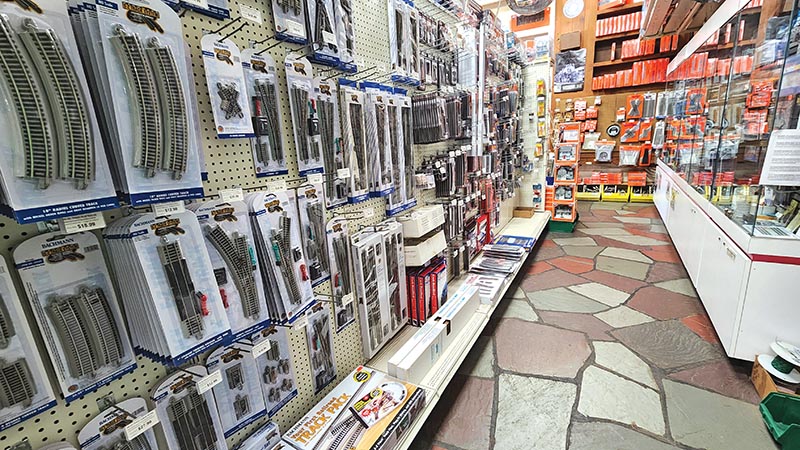 Often times I have heard and seen it written that “We must support the local hobby shop or they will disappear.” When I hear this, I often wonder why the responsibility has shifted from the hobby shop to the customer. With all due respect, it’s their business; shouldn’t they be more concerned about their existence than I am?
Often times I have heard and seen it written that “We must support the local hobby shop or they will disappear.” When I hear this, I often wonder why the responsibility has shifted from the hobby shop to the customer. With all due respect, it’s their business; shouldn’t they be more concerned about their existence than I am?
“Price is only an issue in the absence of value.” It’s one of my favorite sayings in my profession as a sales manager. I’m not sure who coined it or where I heard it first, but it says so much about the power of establishing a “value proposition.” By definition, a value proposition is a short statement that communicates to potential customers why they should support a specific business. Every business should understand and execute its value proposition. Hobby shops are no exception.
Through the sales process, the customer should learn the value of doing business with the hobby shop and the perils they face if they don’t. However, if the hobby shop owner doesn’t know what their value is, how should we expect the customer to?
Offering lower prices alone is not offering value. Price is what a customer pays; value is what a customer gets. A customer might have received a great price, but what value did they get in the transaction? Did they get a warm greeting when they entered? Did you tell them about upcoming releases? Did you learn anything about them that would provide an upsell opportunity? Did they feel welcome? Did you invite them back?
Too many times, I have walked into a hobby shop and felt like a stranger walking into someone else’s home uninvited. I was ignored by the staff, couldn’t find what I was looking for, and was nearly convinced that earning my business had no value to them. In one shop, the owner had a dog that was sitting right in the doorway. When I opened the door, it was I, not the dog, who was commanded to watch my step. There was no need; I shut the door, never to return.
When a hobby shop closes, although sad, perhaps it’s the natural result of the inability of that shop to provide real value to its customers. Recently, a local hobby shop closed its doors after decades in business. To last that long, they must have done something right. What changed? Was it the economy, stiff competition from the internet, or maybe it was the owner’s health or a lack of a succession plan? I’m not sure. I do know that my last trip to this hobby shop, nearly a year before it closed, was a cold and unwelcoming experience. The owner never greeted me, nor offered me any assistance. That tells me they didn’t look to build a relationship with me at all. I didn’t buy anything that day; they didn’t earn my business, and now they never will.
I recently debated with a friend if a hobby shop needs to be an internet retailer to survive. While I could agree with him that to grow your business, you must evolve to meet the needs of your customer, I’m not completely sold that an e-commerce presence is required. I could list at least three shops in my area that are not on the internet, yet continue to exist with brick-and-mortar locations only. One of which is open only three days a week and reports that business continues to grow despite the reduced hours.
People will make purchases from people they like. It’s that simple. They are drawn to them like a mosquito to a bug zapper, with their wallets out, just begging you to take their money. People will pay more and look to find more ways to do business with someone they like. They will overlook things like a lack of a website or reduced hours. When I have an exceptional customer experience, I look to that company to find out what else they provide. I’ll even drive out of my way and pass the door of another store to reach the one I’m welcomed at. I want more of that good feeling!
There is good news for the ailing hobby shop owner: providing an exceptional customer experience will cost you nothing but your time. Greet your customer and welcome them in. Ask them questions and get to know them a bit. Encourage customers to return to show off their work based on the supplies they just bought. Build a relationship. Make them feel like you care because you do; your existence depends upon them. Give customers a reason to return, even if it’s just for a friendly chat. With the approaching holiday season, hobby shop owners have an opportunity to welcome a new generation of hobbyists as first-time buyers. Your store will be their introduction to the hobby, and you can become a trusted primary resource they turn to for future purchasing advice.
I want local hobby shops too, but they need to want my business more.
—Ray Arnott



